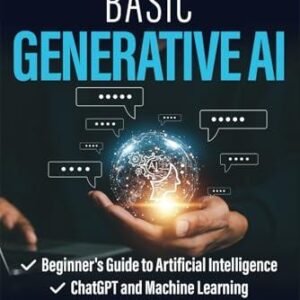In today’s rapidly evolving business landscape, enterprises are increasingly seeking innovative solutions to enhance efficiency, drive growth, and maintain a competitive edge. At the forefront of this transformation lies artificial intelligence (AI), a powerful catalyst for change that is redefining how organizations operate. From streamlining operations and optimizing supply chains to enhancing customer experiences and enabling data-driven decision-making, AI is not merely a technological upgrade; it is a strategic imperative. This article explores the multifaceted role of AI in transforming enterprises, delving into the various applications and benefits it offers across different sectors. As organizations embrace this technology, understanding its strategic potential becomes essential for leaders aiming to navigate the complexities of the modern marketplace and harness the full scope of AI’s capabilities to foster long-term success.
Table of Contents
- Embracing AI as a Core Business Strategy for Sustainable Growth
- Leveraging Data Analytics: Enhancing Decision-Making through AI Integration
- Cultivating a Culture of Innovation: Preparing Workforce for an AI-Driven Future
- Ethical AI Implementation: Balancing Innovation with Responsibility in Business Practices
- Wrapping Up
Embracing AI as a Core Business Strategy for Sustainable Growth
As businesses navigate the complexities of a rapidly changing marketplace, integrating AI into core strategies is no longer optional; it has become essential for sustainable growth. By leveraging data-driven insights, companies can enhance operational efficiency and make informed decisions that align with long-term objectives. Organizations adopting AI are experiencing notable advantages, including:
- Improved Customer Experience: AI algorithms analyze customer behavior, allowing businesses to personalize interactions and predict future needs.
- Operational Efficiency: Automation of repetitive tasks frees up valuable resources, enabling teams to focus on higher-value activities.
- Enhanced Decision-Making: Predictive analytics empower leaders to anticipate market trends and adjust strategies proactively.
Moreover, embracing AI fosters innovation by encouraging a culture of experimentation and agility. Organizations can utilize AI to identify new opportunities and streamline product development cycles. As seen in recent industry reports, businesses utilizing AI technologies have reported a significant increase in revenue growth. The following table presents insights into AI’s impact across various sectors:
| Industry | Revenue Growth Increase (%) | Cost Reduction (%) |
|---|---|---|
| Retail | 23 | 15 |
| Healthcare | 30 | 20 |
| Manufacturing | 25 | 18 |
These statistics reinforce the argument that AI is not merely a technological tool but a catalyst for comprehensive business transformation. To fully harness the potential of AI, organizations must cultivate a forward-thinking culture that embraces change, prioritizes continuous learning, and incorporates AI at every strategic level.
Leveraging Data Analytics: Enhancing Decision-Making through AI Integration
In today’s data-driven landscape, integrating AI with data analytics has become a cornerstone for organizations aiming to refine their decision-making processes. By harnessing advanced algorithms and machine learning techniques, businesses can uncover deep insights from complex datasets that were previously challenging to interpret. The result is not just enhanced data comprehension but also the ability to make proactive decisions that align with market dynamics and consumer behavior. Key advantages include:
- Predictive Analytics: Forecast trends and prepare for future demands.
- Enhanced Operational Efficiency: Streamline processes through data-driven strategies.
- Better Customer Insights: Tailor products and services to align with customer preferences.
Furthermore, the integration of AI tools facilitates real-time analysis, allowing leaders to react swiftly to changing market conditions. With the capacity to analyze vast amounts of data in mere seconds, organizations can pivot strategies based on immediate insights rather than historical data alone. To illustrate, consider the following comparison of traditional decision-making versus AI-enhanced decision-making:
| Aspect | Traditional Decision-Making | AI-Enhanced Decision-Making |
|---|---|---|
| Data Processing Time | Hours to Days | Seconds to Minutes |
| Scenario Analysis | Limited Models | Multiple Simulations |
| Decision Accuracy | Moderate | High |
Cultivating a Culture of Innovation: Preparing Workforce for an AI-Driven Future
To thrive in an era increasingly characterized by artificial intelligence, enterprises must foster an environment that champions creativity and adaptability. This involves nurturing a workforce that not only embraces technological advancements but also feels empowered to contribute innovative ideas. Training programs should be designed to encourage employees to think critically and experiment with AI tools, ensuring they possess the analytical skills necessary to leverage these technologies effectively. Organizations should also promote a collaborative culture where teams can freely share insights and solutions, enhancing the collective capability to innovate.
Moreover, leadership plays a pivotal role in guiding this cultural shift. Executives should model an innovation-centric mindset, demonstrating a commitment to continuous learning and openness to new ideas. Companies can implement mentorship programs that pair seasoned professionals with younger talent, fostering a knowledge exchange that enriches the workforce’s ability to adapt. Initiatives such as innovation labs or hackathons can further stimulate creativity, allowing employees to experiment in controlled settings. The establishment of clear metrics to evaluate innovation efforts will help maintain focus and direction, ultimately driving the organization toward sustainable growth in an AI-enhanced landscape.
| Key Strategies | Description |
|---|---|
| Empowerment | Encouraging employees to take ownership of their ideas. |
| Collaboration | Fostering teamwork to enhance innovation. |
| Leadership Support | Executives modeling innovation-centric behaviors. |
| Mentorship Programs | Facilitating knowledge exchange between generations. |
Ethical AI Implementation: Balancing Innovation with Responsibility in Business Practices
As organizations increasingly integrate AI technologies into their operations, the need for a framework that upholds ethical principles becomes paramount. Businesses must prioritize transparency in their AI models to ensure that their algorithms are interpretable and fair. Factors such as bias mitigation, data privacy, and accountability must be at the forefront of any AI initiative. By fostering an environment of ethical AI implementation, companies can not only enhance their reputation but also drive stakeholder trust, which is critical for long-term success.
To achieve this balance, organizations can adopt a set of best practices that guide their AI endeavors. These include:
- Establishing an Ethical Review Board: A committee to oversee AI initiatives and assess their ethical implications.
- Regular Bias Audits: Routine evaluations of AI systems to identify and rectify biases within data sets and decision-making processes.
- Stakeholder Engagement: Involving employees, customers, and community members in discussions about AI development and its potential impacts.
- Data Governance Policies: Implementing strict guidelines for data collection, storage, and usage to protect user privacy.
Wrapping Up
as organizations navigate the complexities of the modern business landscape, the strategic integration of artificial intelligence stands as a pivotal driver of transformation. Embracing AI not only enhances operational efficiencies but also fosters innovation, enabling businesses to unlock new avenues for growth and stay ahead of the competition. Leaders who recognize the potential of AI to redefine processes, improve decision-making, and enhance customer experiences will position their enterprises for sustained success in an increasingly digital world. As we move forward, the ability to harness and adapt to the evolving capabilities of AI will undoubtedly distinguish industry frontrunners from the rest. The journey has just begun, and those who are willing to invest in AI-driven strategies today will be the trailblazers of tomorrow.





